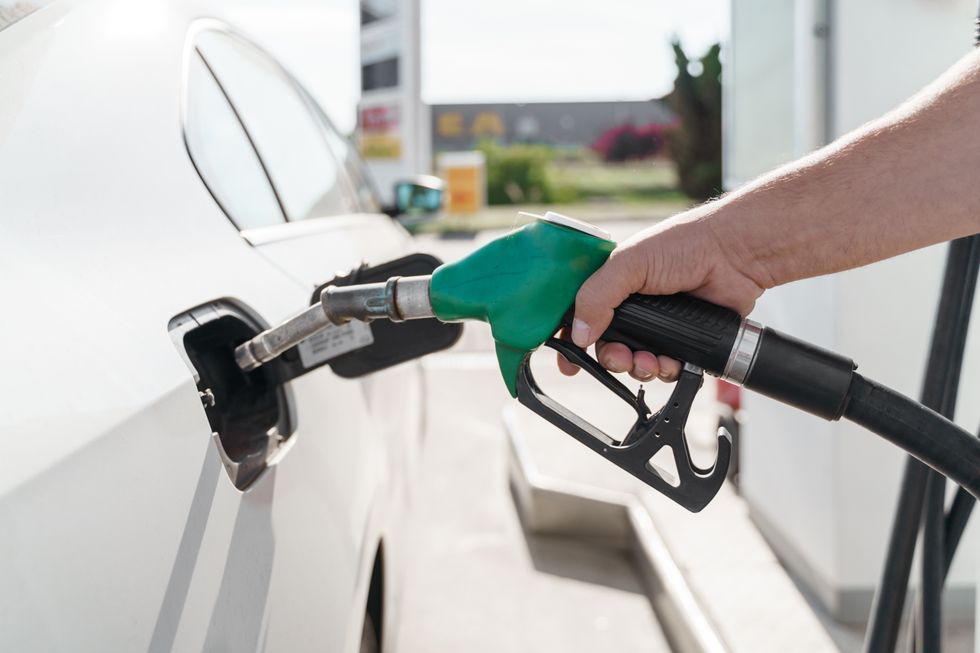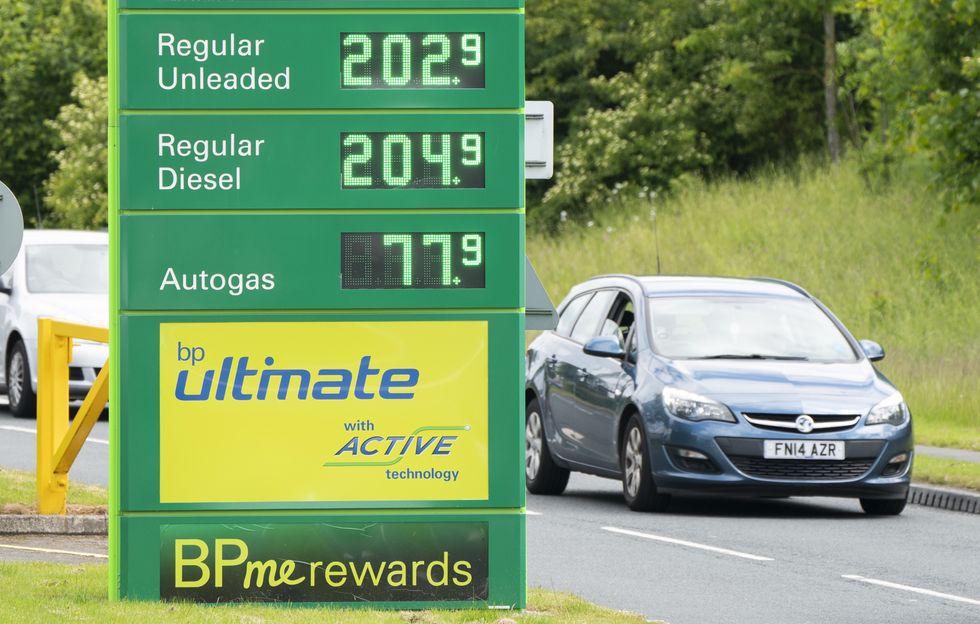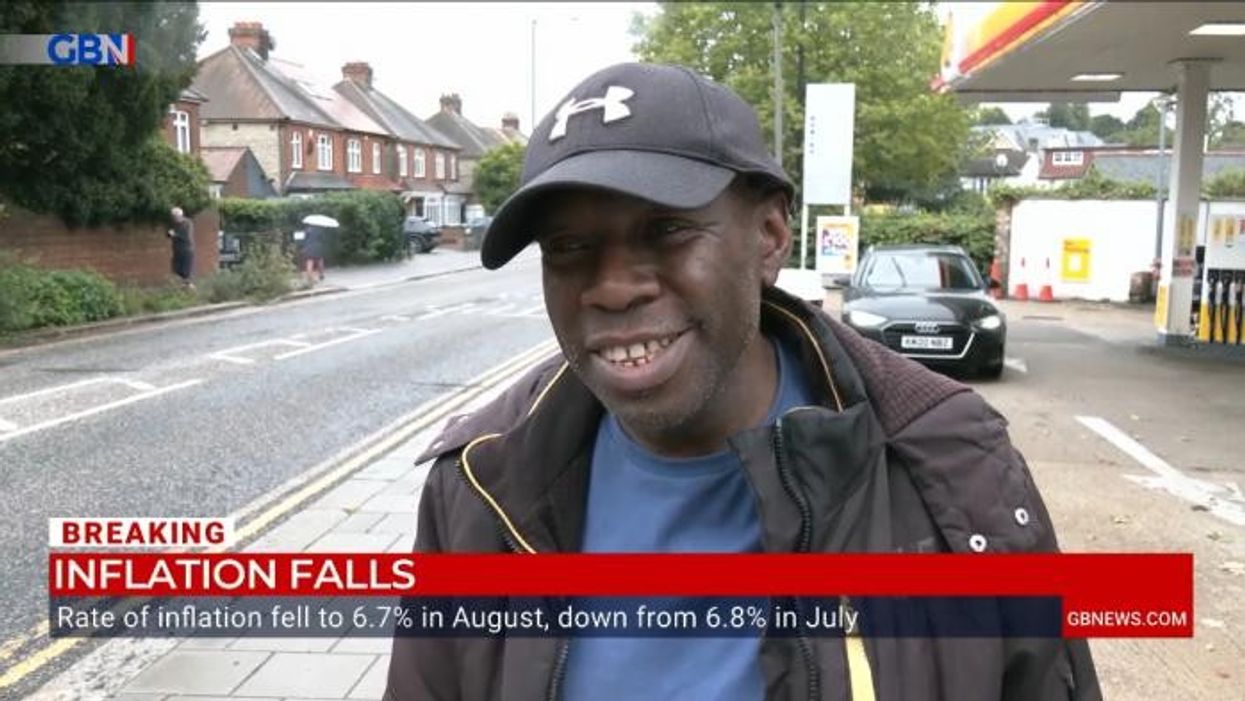Drivers concerned about petrol and diesel price hikes ahead of major fuel duty announcement

The Government is expected to give an update about fuel duty changes on March 6 next year
Don't Miss
Most Read
More than half of drivers are concerned about rising fuel prices and have identified petrol and diesel costs as their biggest challenge going into 2024.
A total of 51 per cent of drivers said their biggest concern going into the new year is the rising cost of fuel followed by car insurance hikes (34 per cent) and the cost of purchasing a new car (22 per cent).
Drivers are currently paying an average cost of £1.41 for petrol and 148.73p per litre for diesel, with RAC Fuel Watch predicting that costs will continue to fall further.
Supermarket forecourts offer lower prices, with the average cost setting drivers back at just 137.82p per litre for petrol and just over 146p for diesel.

More than half of drivers are concerned about rising petrol prices
|GETTY
These prices represent a significant drop compared to the prices at forecourts last summer, where drivers were routinely spending almost £2 for a litre of fuel.
However, there are still fears that prices could rise after major oil companies, including Shell, announced they would stop transporting goods through the Red Sea after a number of attacks from rebels.
Some economists have forecast that the price of fuel could rise in the new year, with Philip Shaw, chief economist at Investec, saying the rising cost of oil would hit pumps “over the next week or two”.
Further data suggests has found that 11 per cent of people have started to ask friends and family to contribute towards the cost of fuel when giving them a lift.
More than a quarter of drivers (27 per cent) said they have been forced to cut back on the amount they drive in an attempt to save costs.
Lisa Watson, Director of Sales at Close Brothers Motor Finance, said drivers were searching for ways to tackle the ongoing cost of living crisis, especially when it comes to their motoring expenses.
She added: “As we move into the New Year drivers are going to be looking at ways they can make cutbacks, whether that’s shopping around for the best vehicle purchase price, cutting back at the pump or reducing how often they drive.
“The ongoing hikes at the pumps continue to add further pressure to drivers who already feel they’re faced with increased costs from all lanes.
“With high interest rates, inflation, and the increased cost of running a car – many are now having to explore other measures to stretch their finances further – including charging friends and family for fuel when giving them a lift.”
Earlier today, Jeremy Hunt announced that he would be delivering the 2024 Spring Budget on March 6, with many drivers looking for an update on fuel duty.
Rishi Sunak, who was Chancellor at the time, first cut the rate of fuel duty in March 2022 in response to rising fuel costs stemming from the Russian invasion of Ukraine and global oil prices.
This was extended again earlier this year, with drivers saving five pence on every litre of fuel purchased, although many believe that major retailers were slow to cut costs for motorists.
The Chancellor of the Exchequer also announced that the Office for Budget Responsibility (OBR) has been formally commissioned to public economic forecasts on March 6, 2024.
The OBR has previously suggested that the Government would use the 2023 Spring Statement to hike fuel duty rates by 23 per cent.
LATEST DEVELOPMENTS:
- Drivers slapped with 36,000 parking tickets each day with urgent calls for law changes to protect Britons
- Chinese electric car brand shows off EV that travels 1,000km on a single charge with UK launch expected soon
- Self-driving cars to be on Britain’s roads by 2026 as Transport Secretary hints at massive law changes

Fuel prices peaked last summer at record levels
|PA
Estimates stated that such a tax rise would bring in an additional £5.7billion in revenue for Government coffers.








